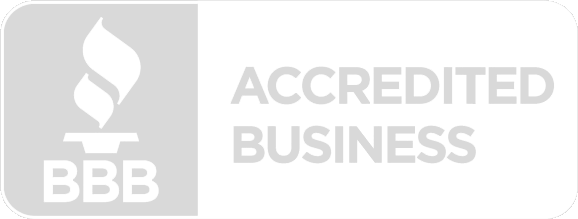When Should You Call A Private Utility Locator
Starting a building project requires careful planning and vision, regardless of whether you are a seasoned contractor or a visionary homeowner. Knowing what’s below the surface—underground utilities—is one of the important things that frequently goes unnoticed. Although public utility locators, often known as 811 services, are essential for locating public utilities, a category of private utilities requires specific consideration. This in-depth manual seeks to clarify the differences between public and private utilities, the shortcomings of public utility locators, the possible consequences of ignoring private utilities, and the critical function that private utility locators play in enhancing the security and accomplishment of excavation projects.

Public vs. Private Utilities: A Distinct Divide
Understanding the difference between public and private utilities is necessary to appreciate the importance of private utility locators. Public utility companies own and operate public utilities, which include power, communications, water, gas, sewer and more. While 811 services are useful for finding public utilities, public utilities typically account for less than 50% of utilities in work areas. Private utility locators are required to identify private utilities. Private utilities encompass a wide range of lines, including telephone, internet, fiber optics, gas, water, sewage, electricity, and more.
811 services generally mark up to a meter base or sometimes stop their marks on private property. This restriction emphasizes the importance of using private utility locators to ensure a thorough knowledge of the subsurface environment.
Unraveling the Limitations of Public Utility Locators
Public utility companies don’t typically keep records for private utilities. Since over 50% of utilities are privately owned, we recommend hiring a private utility locating company to map the utilities on your property for record keeping. Even though 811 services are very helpful in identifying public utilities, private utility locating services are still necessary.
In most circumstances public locators only use electromagnetic transmitters and receivers, limiting them to only being able to mark metallic/conductible utilities. If you need to locate a non-metallic or non-conductible utility it is highly recommended that you contact a private locate company to utilize a higher tier service like ground penetrating radar, acoustic detection, video pipe inspections, etc.
Remember most private utilities are not marked on maps or drawings, and property owners are unaware of them. Thus, private utility locators become essential to ensure a comprehensive and accurate picture of the subsurface landscape and reduce the risks associated with unforeseen obstacles during construction.
Consequences of Hitting Private Utility Lines: A Grave Reality
Excavation might have serious repercussions if private utilities are not properly understood. Hitting private utility lines can cause significant damage to the utilities and excavation equipment in addition to the risk of worker injury or fatalities. In addition to taking a lot of time and money, fixing these utilities frequently requires excavating the whole cable, conduit, or pipe.
Damages that go beyond the immediate area may impact nearby systems and lead to problems like localized flooding or internet disruptions. Large-scale catastrophes like gas main explosions or oil pipeline ruptures show the disastrous possibility of striking private utility lines. It is critical to acknowledge the role private utility locators play in averting these kinds of situations.
Revealing How Private Utility Locating Works
Private utility locators use modern technology to provide precise and trustworthy results. Private locators use different technologies for different circumstances, for example electromagnetic transmitters and receivers are used to locate galvanized water services, while acoustic detection, ground penetrating radar, or traceable rods are used to identify plastic water services.
Contractors or homeowners should hire private utility locating services before starting excavation or project design. Private locators reduce the chance of unforeseen difficulties during construction since the positions and depths of utilities are marked prior to performing subsurface work.
Can a Private Utility Locator Find Everything?
Although the accuracy of subterranean utility information is improved by private utility locators, it is important to recognize the limitations of any service. No locating company can promise to find every utility in a given area. Limitations like access points, abandoned utilities, non-conductible utilities, soil conditions, traffic, noise, etc. can make it difficult to impossible to get a signal, visual, or acoustic reading on a utility. Occasionally these types of utilities can be uncovered during excavation.
However, private utility locators offer a thorough scan of the area and drastically lower the chance of surprises. This proactive strategy can help homeowners and contractors avoid potential difficulties during construction.
Requesting a Quote from a Private Utility Locator
You can contact a representative at CNI Locates to obtain a rough cost estimate, and certain information must be provided. To receive an estimate, the following information is essential:
- Location Address: Indicate the project’s precise location.
- Service Type(s) Required: Clearly state the kind of utility location service(s) necessary.
- Number of Proposed Locations: Indicate the number of sites that will be assessed.
- Estimated Area Size: State how many square feet or lineal feet the project will be.
- Intended Type of Work: Indicate the nature of the work that will be carried out at the site.
- Type of Facility: State if this project is commercial, residential, or industrial.
- As-Builts, Plot & Site Plans: Send over any site plans that are accessible.
- Add google earth satellite photos with the work area(s) outlined in red.
- Pictures & Details of Unusual Features: Call attention to any oddities or problems.
- Drawing the Targeted Areas: Clearly define the areas needing assessment.
- Access Points & Authorization: Let us know where any access points or termination points are located and let us know if we have permission to access those areas.
- More information may be needed depending on the services that are required and your scope of work.
The Role of a GPR Utility Locator
Ground Penetrating Radar (GPR) is a useful tool for subsurface utility locators. GPR doesn’t emit any harmful radiation and has the ability to locate utilities, objects, voids, structures, and more beneath the surface and in concrete.
Benefits of GPR
- Accurate Locates and Depths: GPR can accurately locate and determine the depth of both metallic and non-metallic utilities/objects beneath the surface and in concrete.
- Non-Destructive Examination: GPR is a noninvasive procedure.
- No Health Hazards: GPR doesn’t emit any harmful radiation.
- Quiet Operation: GPR doesn’t make any loud noises.
- Cost-effective: Using GPR before performing subsurface work reduces the chance of striking a utility, minimizing repair and downtime costs.
- Instant Results: GPR provides instant data.
Addressing Common Concerns: Can GPR Find Everything?
Even though GPR is an effective and flexible instrument, it’s important to recognize that no technology can provide 100% confidence. Several variables affect GPR’s effectiveness, such as soil conditions, electrical conductivity, the presence of other materials, objects that block the scan area, metals, and more. For example, GPR may be less effective in areas with high moisture content or clay soil conditions.
But despite these drawbacks, GPR is still a useful tool in the utility locating arsenal. It is preferable in many situations due to its ability to trace metallic and non-metallic utilities, provide precise positions and depths, and conduct a non-destructive investigation.
The Economic Impact of GPR: A Cost-Effective Solution
One of the biggest concerns in every building project is the financial impact of unforeseen difficulties. Damage to existing utilities during excavation can lead to expensive work stoppages, setbacks from structural damage, worker injuries, or even facility shutdowns due to severed utility lines, not to mention the exorbitant cost of repairs.
GPR enhances safety and helps protect existing utilities. This strategy is cost-effective even outside of short-term financial concerns. It protects against legal penalties, downtime-related fees, and long-term damage to a contractor’s image.
Embracing GPR to Identify Dangers Early On
GPR is a proactive tool to help identify dangers prior to subsurface work in addition to its core use for utility locates. Strategic planning and risk reduction are made possible by identifying possible problems before the start of subsurface work. Subsurface anomalies such as voids may indicate structure instability-prone locations, which GPR can detect. GPR can also detect utilities and unknowns that contractors may not have been aware of before performing subsurface work.
Using GPR to identify dangers early on helps homeowners and contractors make well-informed decisions, modify project plans as necessary, and enhance the project’s safety and success.
Fast, Reliable Diagnosis of Problems with GPR
Time is of the importance in the fast-paced business of construction. Unexpected utility delays can have a domino impact on project finances and schedules. Real-time data using GPR allows for quick and accurate problem detection.
GPR is an invaluable tool for construction industry experts looking for simplified and efficient procedures because of its speed and accuracy. GPR improves the overall efficiency of construction projects by helping to pinpoint the position of utilities and identify any issues before they become more serious.
CNI LOCATES: Your Trusted Partner in Utility Locating
CNI Locates knows how vital precise utility information is to the success of building projects and are known for producing accurate results even in difficult settings.
Why Choose CNI LOCATES?
- Experience: CNI Locates has over 22 years of utility locating experience. It has gained the respect of both business executives and residents by effectively completing difficult tasks.
- Expertise: CNI Locates technicians are well trained and educated with extensive experience in utility locating. Their knowledge ensures accurate results.
- Cutting-Edge Technology: CNI Locates utilizes the latest technologies for utility detection and inspection services to enhance their results.
- Proactive Approach: CNI Locates takes a proactive approach to utility locating, helping clients spot any issues before excavation begins.
- Economical Solutions: CNI Locates provides economical solutions that extend beyond short-term financial issues by helping prevent damages to existing utilities.
- Simplicity: CNI Locates places a high value on simplicity, ensuring that customers—homeowners or contractors—can quickly navigate and comprehend the utility locating process.
- Timeline: CNI Locates provides services within 24 hours’ notice Monday through Friday.
- Safety: CNI Locates enhances safety and minimizes downtime, risks, and financial setbacks.
- Proven Track Record: CNI Locates has a success rate over 99% performing accurate utility locates without subsurface damages.
Conclusion
Whether a building project will succeed depends on how carefully engineers lay the groundwork for utilities beforehand. Public utility locators are useful for public utilities, but over 50% of utilities are private and need to be located by a private utility locating company. Private utility locates, these days, are more important than ever before. Potential complications from encountering utilities while digging throw an entirely new light on the importance of modern private utility locators. Ground penetrating radar is a dependable and effective tool that offers benefits such as accurate detection, non-destructive testing, affordability, and enhanced safety.
Choosing a trusted private utility locating service is important. Use CNI Locates years of experience and technological expertise to find utilities quickly and easily. Get in touch with CNI Locates immediately for a price and consultation. CNI Locates offers reliable evaluating and proactive risk avoidance–it’s the ally you need to ensure that your projects can be done safely.
C-N-I Locates Ltd Washington State Field Offices and Contact Information
For any inquiries, feel free to reach out to us at (253) 826-1177, drop us an email at [email protected], or conveniently schedule a work request/estimate directly on our website. To provide a seamless experience, we require just 24 hours’ notice, Monday through Friday, to schedule an appointment for the following business day. Your convenience and prompt service are our top priorities.
Everett, Washington Field Office (425)407-9400
Renton, Washington Field Office (425)407-9399
Seattle, Washington Field Office (206)681-0034
Tacoma, Washington Field Office (253)831-6350
Portland, Oregon Field Office (971)312-6745 (for southern Washington services)

